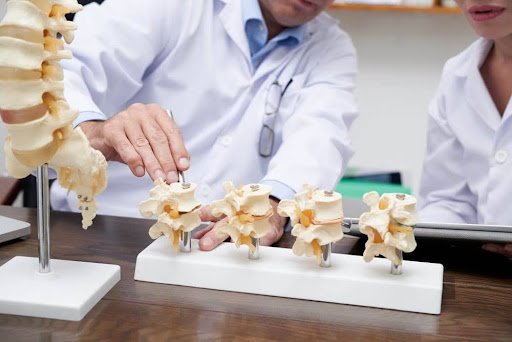The human spine plays a crucial role in supporting the body’s structure and facilitating various movements. However, certain spine conditions or injuries may arise, leading to discomfort and impairing the spine’s normal functioning. In some cases, spine surgery becomes a necessary intervention to alleviate symptoms and restore quality of life. This blog aims to provide a comprehensive overview of when spine surgery may be necessary, detailing symptoms, common conditions, and available treatment options.
Symptoms that may Indicate the need for Spine Surgery:
- Chronic Back Pain:
Persistent and severe back pain that doesn’t respond to conservative treatments like rest, physical therapy, or medications may be an indication for spine surgery.
- Radiating Pain:
Pain that radiates down the arms or legs, often accompanied by tingling or numbness, could suggest nerve compression, which may require surgical intervention in spine.
- Muscle Weakness:
Weakness in the muscles of the arms or legs may indicate spinal cord or nerve root compression, potentially necessitating surgery to relieve pressure on the affected nerves.
- Loss of Bladder or Bowel Control:
This is a serious symptom that may indicate cauda equina syndrome, a condition where urgent surgical intervention is required to prevent permanent damage.
Common Conditions Requiring Spine Surgery:
- Herniated Disc:
When the soft inner core of a spinal disc leaks out through a crack in the tough outer layer, it can compress nearby nerves, causing pain and other symptoms. Spinal surgery procedure, such as a discectomy, may be performed to remove the herniated portion and relieve pressure on nerves.
- Spinal Stenosis:
This condition involves the narrowing of the spinal canal, putting pressure on the spinal cord and nerves. Surgical options like laminectomy or spinal fusion surgery may be considered to alleviate symptoms.
- Degenerative Disc Disease:
As discs in the spine wear down over time, it can lead to pain and reduced mobility. Surgical procedures like spinal fusion may be recommended to stabilize the spine and alleviate symptoms.
This occurs when a vertebra slips out of place, causing instability and compression of nerves. Surgery, such as spinal fusion, may be required to stabilize the spine and relieve symptoms.
Treatment Options for Spine Conditions:
- Conservative Approaches:
Before opting for surgery, non-surgical methods such as physical therapy, medications, and lifestyle modifications are often explored.
Techniques like microdiscectomy and endoscopic spine surgery involve smaller incisions, reducing trauma to surrounding tissues and promoting quicker recovery.
- Spinal Fusion:
This surgical procedure involves fusing two or more vertebrae to provide stability and alleviate pain, commonly used for conditions like degenerative disc disease or spondylolisthesis.
- Artificial Disc Replacement:
In cases where a damaged disc is removed, an artificial disc may be implanted to maintain spine mobility while addressing the underlying issue.
Choosing the spine surgeon is crucial when contemplating spine surgery. Dr. Vishal Bhasme has expertise, coupled with a patient-centered approach, makes him a notable figure in the field of spine surgery in Pune. A consultation can be a pivotal step towards comprehensive and personalized spine care. Always remember that a collaborative and informed decision-making process between the patient and their doctor is essential for achieving the best possible outcomes in spine health.















